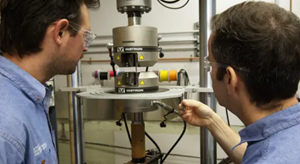News
Australian H2 industry one step closer as new study commences
Jemena has partnered with University of Wollongong and GPA Engineering to undertake a H2 compatibility study of Jemena’s Eastern Gas Pipeline (EGP). The study will combine laboratory testing and engineering assessments to provide information on the compatibility of the EGP line pipe material for transportation of H2 in pure form, or as a blend with natural gas.
Jemena General Manager – Asset Management, Gas Markets, Sean Ward said that the study represented a potential significant step forward for a future Australian H2 industry.
“We want to play a key role in supporting Australia’s transition to a low-carbon future and believe H2 could have an important part to play in the future energy mix. This study will help us to better understand the role that existing high pressure gas transmission pipelines will play in the H2 industry of the future.
“The first phase of the project will include laboratory testing of EGP spare pipe material in air, which we anticipate will offer valuable insights into the behavior of the EGP line pipe in full scale conditions. Based on the outcomes of this first phase, a potential second phase will involve laboratory testing in a H2 environment at the University of Wollongong,” he said.
Ward said this study builds on Jemena’s investment in renewable gases, a carbon-neutral source of gas supply.
“We are proud of our investments in biomethane and H2, having built one of the first power-to-gas trials to inject H2 into the gas distribution network and Australia’s first GreenPower accredited biomethane facility. By repurposing existing gas infrastructure, we can use what we have today to build the net-zero energy system of the future, helping lower the costs involved with the energy transition.
“With no Australian standards available for a local H2 industry as yet, it is important we continue to work with industry and government stakeholders to make a renewable gas future a reality,” he said.
Josh Wickham, GPA’s Pipelines and Compression Industry Manager, said that GPA Engineering are happy to continue our partnership with Jemena, supporting the development of Australia’s green gas industry by providing engineering expertise for industry leading projects.
“There is much potential in converting existing pipeline infrastructure for the transmission of H2; ensuring we do so safely and efficiently is vital. GPA have completed several similar detailed H2 pipeline studies and are the lead author for the soon to be published H2 Pipeline Systems Code of Practice under the FFCRC. We value our leading role in supporting engineering development of novel H2 and bioenergy projects and conversion of existing assets for low carbon fluids,” he said.
Bradley Davis, Manager of the H2SAFE(TI) Lab at the University of Wollongong, said the University of Wollongong was home to Australia’s only lab capable of testing steels in a high-pressure H2 gas environment with funding provided by the Future Fuels CRC.
“Qualifying pipelines for H2 service require testing and analysis that go beyond the conventional methods used for natural gas.
“When exposed to H2, pipeline steels can see large changes in their ability to resist fracture initiation and crack growth. However, when quantified, these changes can be used by designers to review and, where needed, alter the pipeline’s operating conditions to maintain high levels of safety. We are excited to take part in Jemena’s journey to a net-zero energy future,” he said.


